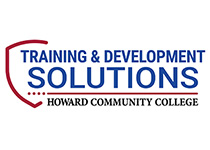
Employee Code of Conduct Procedure - 63.09.14
College Policy Number/Title:
Howard Community College (HCC) expects that its employees will meet ethical and professional standards for personal conduct and work performance. All students and employees have the right to learn and work in a positive learning environment that is free of harassment, threats, intimidation, violence, or any other misconduct. Any violent, intimidating, threatening or harassing behavior, or other misconduct in any form, will not be tolerated in the classroom, workplace, or anywhere college business is conducted.
These standards include but are not limited to the following list. Employees will:
- Adhere to all applicable laws and regulations.
- Adhere to college policies and procedures.
- Adhere to ethical standards (refer to policy 609, Ethics and Conduct).
- Adhere to job requirements in a professional and competent manner.
- Report to work on time and ready to work.
- Provide competent and efficient service to the college.
- Avoid real or apparent conflict of interest between responsibilities as an employee and any outside interests.
- Maintain confidentiality of student, employee, and college records.
- Avoid any actions to fraudulently influence, coerce, manipulate, or mislead any auditor in the performance of an audit.
- Disclose to auditors any questionable accounting or auditing matters.
- Follow “Standards of Conduct” of the Maryland Public Ethics Law, which applies to state employees including HCC employees.
In addition, the following civil conduct and violence prevention standards apply:
- Employees will respect the rights, dignity, and feelings of others.
- All actions and speech in the classroom, workplace, and anywhere college business is conducted will be civil and respectful.
- Employees are not permitted to commit any violent act or threatening speech act against another student, employee, or any person (unless intervening to prevent a violent act).
- Employees are not permitted to harass or threaten a student, employee, or any person.
- Employees are not permitted to intentionally or maliciously damage or destroy the property of another person or employee.
- Employees are not permitted to obtain any type of personal loans from college funds whether the loan occurs from a petty cash fund or a regular college checking account.
- The possession of firearms and other weapons is typically not permitted on college-owned or college-controlled property (refer to procedure 50.07, Weapons).
Maryland State Ethics Commission Standards of Conduct
The Public Ethics Law, Maryland Annotated Code, General Provisions, Title 5, provides provisions that govern ethical behavior of employees. These provisions apply to HCC employees. A summary of these provisions includes:
-
- An employee may not intentionally use the prestige of office for personal gain or that of another.
- An employee may not participate in a matter that involves as a party a business entity in which the employee or certain relatives have employment, prospective employment, contractual, or creditor relationships.
- An employee may not participate in an official action, decision, or matter in circumstances where the employee has an interest or where certain relatives of the employee have an interest.
- An employee may not hold any employment relationship that would impair his or her impartiality or independence of judgment.
- An employee may not disclose or use for personal economic benefit, or that of another, confidential information acquired by reason of his or her public position.
- A former employee may not assist or represent anyone other than the college for compensation in a case, contract or other specific matter involving the college, if that matter is one in which he or she significantly participated as an employee.
- Employees may not solicit gifts for themselves or others.
This is a general summary only and should not be used as a substitute for the law.
Infractions
Any infractions, including but not limited to, violations of the employee code of conduct or college policies, procedures, and practices; incompetent or inefficient service; insubordination; illegal acts; willful neglect of duty; or unprofessional or unethical conduct constitute misconduct on the part of the employee. Misconduct will result in disciplinary action and may be cause for suspension or dismissal.
Effective Date: 06/30/22
President's Office Use: CHRO



